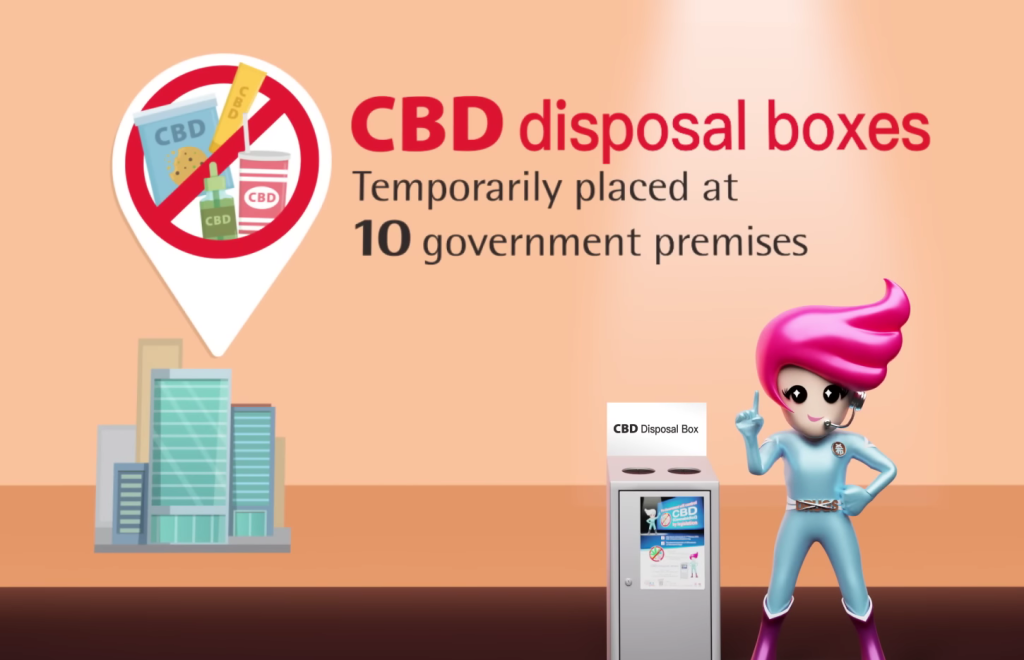Hong Kong has classified cannabidiol (CBD) as a “dangerous drug” as of Wednesday, February 1, and will impose strict penalties for transportation, production, possession, and consumption. The move has sparked outrage among CBD advocates, who say the substance can treat a range of conditions, including anxiety, and does not have psychoactive effects like THC, which is already banned in Hong Kong.
Hong Kong Criminalizes CBD, Possession Carries Life Imprisonment


Hong Kong has officially classified cannabidiol (CBD) as a “dangerous drug” as of Wednesday, February 1, and will impose strict penalties for transportation, production, possession, and consumption.
For more news like this, download our free cannabis news app.
CBD Now Subject to “Serious Consequences” in Hong Kong
At a press conference, Hong Kong Customs chief Au-Yeung Ka-Lun stressed that transporting, importing, and exporting CBD, as well as manufacturing, possessing, and consuming the substance, is “illegal and subject to serious consequences,” such as fines of up to HK$5 million (over $2,700) and/or imprisonment – up to life imprisonment, depending on the case.
The move has sparked outrage among CBD advocates, who say the substance can treat a range of conditions, including anxiety, and does not have psychoactive effects like tetrahydrocannabinol (THC), which is already banned in Hong Kong.
CBD Was Previously Legal in Hong Kong
Previously, CBD derived from the hemp plant was legal in Hong Kong, with bars and stores selling CBD products. However, Hong Kong authorities decided to ban the substance due to the difficulty of isolating CBD directly from the plant and the possibility of THC contamination during production. The government also claims that CBD can be converted into THC and other semi-synthetic cannabinoids.
The ban affects dozens of companies in Hong Kong that have begun selling products containing CBD, such as jellies, beverages, and others. In October 2022, residents were informed that they had three months to dispose of their CBD products in special containers placed around the city.
Hong Kong’s “dangerous drugs” category includes substances such as heroin and cocaine, as well as cannabis itself. This ban on CBD by the Hong Kong government is in line with China’s stance of banning the substance in 2022.
Heavy Fines and Life Imprisonment for CBD
The head of the Customs Service, Au-Yeung Ka-lun, stated at a press conference that “as of February 1, cannabidiol, also known as CBD, will be considered a dangerous drug and will be controlled by the Dangerous Drugs Ordinance.”
In addition, Au-Yeung stressed that transporting, importing, and exporting CBD for sale, as well as manufacturing, possessing, and consuming the substance, is illegal and will be punished with severe consequences. Importing, exporting, or manufacturing CBD can result in imprisonment (up to life imprisonment) and fines of up to HKD5 million (about €585,350), while possession of CBD can result in imprisonment of up to seven years and fines can lead to HKD1 million (about €117,000).
Head of the Customs Department’s Airport Command section, Chan Kai-ho, also pointed to the Hong Kong government’s zero-tolerance policy on drugs, stressing that “we will combat all types of dangerous drugs from all angles and for all purposes, and information-based enforcement is our main goal.”
Hong Kong Is no Great Exception in Asian Region
In Asia, most countries maintain strict drug laws and impose harsh penalties on offenders. The only exception is Thailand, which removed cannabis from its drug list and legalized the cultivation and possession of cannabis in 2022.
Paradoxically, the first medical use of cannabis was described in China, with its use recorded in the world’s oldest pharmacopeia, Pen-Ts’ao of China, dating to 2700 B.C., referring to the use of cannabis to treat various conditions such as rheumatic pain, intestinal problems, malaria and problems in the female reproductive system.
—
(Featured image by Narcotics Division, Security Bureau via YouTube)
DISCLAIMER: This article was written by a third-party contributor and does not reflect the opinion of Hemp.im, its management, staff, or its associates. Please review our disclaimer for more information.
This article may include forward-looking statements. These forward-looking statements generally are identified by the words “believe,” “project,” “estimate,” “become,” “plan,” “will,” and similar expressions. These forward-looking statements involve known and unknown risks as well as uncertainties, including those discussed in the following cautionary statements and elsewhere in this article and on this site. Although the company may believe that its expectations are based on reasonable assumptions, the actual results that the company may achieve may differ materially from any forward-looking statements, which reflect the opinions of the management of the company only as of the date hereof. Additionally, please make sure to read these important disclosures.
First published in Fakty Konopne, a third-party contributor translated and adapted the article from the original. In case of discrepancy, the original will prevail.
Although we made reasonable efforts to provide accurate translations, some parts may be incorrect. Hemp.im assumes no responsibility for errors, omissions or ambiguities in the translations provided on this website. Any person or entity relying on translated content does so at their own risk. Hemp.im is not responsible for losses caused by such reliance on the accuracy or reliability of translated information. If you wish to report an error or inaccuracy in the translation, we encourage you to contact us.



Comments are closed for this post.